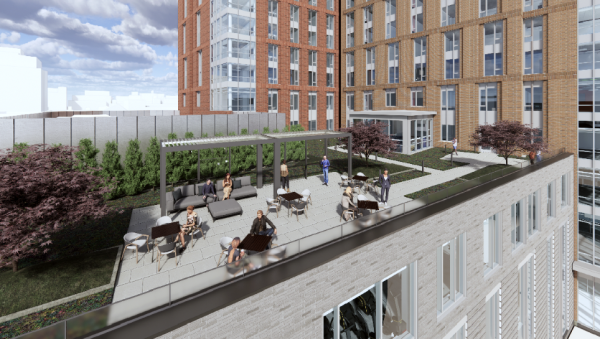Opinion: The Importance of Historically Women’s Colleges
I see HWCs as places where the members of the community are in an inclusive environment to be challenged academically and built into strong, successful leaders to inspire generations to come.
October 20, 2022
Historically women’s colleges (HWCs) have always been a diverse environment for women and other marginalized identities to have their voices heard; people graduate from historically women’s colleges feeling empowered and motivated to make a difference.
I see HWCs as places where the members of the community are in an inclusive environment to be challenged academically and built into strong, successful leaders to inspire generations to come.
Since the 1960s, the number of active institutions that qualify as “women’s colleges” has decreased from nearly 300 to just 28—statistics show that number will continue to get smaller.
On September 13, 2022, Notre Dame of Maryland University (NDMU) in Baltimore, Md. announced that it would become co-educational starting in Fall 2023, after 127 years of being a women’s college.
Despite the Board of Trustees making this decision unanimously, the public was less than pleased. After making the decision based on recent admissions trends for women’s colleges, NDMU President Marylou Yam was met with student-led protests.
The university apologized for its “lack of transparency regarding the coeducational shift.” However, people continued voicing their opinions on social media.
“This is an incredibly bad call that should be reversed,” a Facebook user commented on NDMU’s post regarding the decision. “…there are plenty of ambitious high school seniors who need exactly what a women’s college offers, and just may not know it—I was one of them!”
“This is heartbreaking. We need to do more to elevate and empower women, not less,” another user commented.
Anne Dorwart graduated from NDMU in 1994 and said she didn’t see herself attending the school until she was offered a full-tuition scholarship. However, four years of calling it home caused her to fall in love with the NDMU community.
“Women still were seen as the “weaker sex” in many ways,” said Dorwart. “But not at Notre Dame…we weren’t drowned out, we were encouraged.” At an HWC, where women were leading every organization, she felt a sense of belonging and like her voice was heard.
Maddie Raymond is a current freshman at Bryn Mawr College and said that she feels like she can express herself more authentically without the fear of judgment that cisgender men gave her throughout her experience at a co-ed high school.
In a written statement, Raymond said, “for all marginalized groups, it’s important to have spaces that are designated specifically for them, so as long as women and fem-aligning people are still marginalized in wider society, there will be a need for HWCs and they will remain important.”
Dorwart additionally emphasized the importance of women’s colleges everywhere, noting that they continue to provide a safe environment for women to grow stronger and fight for what they believe in, saying “HWCs are needed to educate women and help turn out confident leaders who do not allow society to reduce the rights of women and others.”









